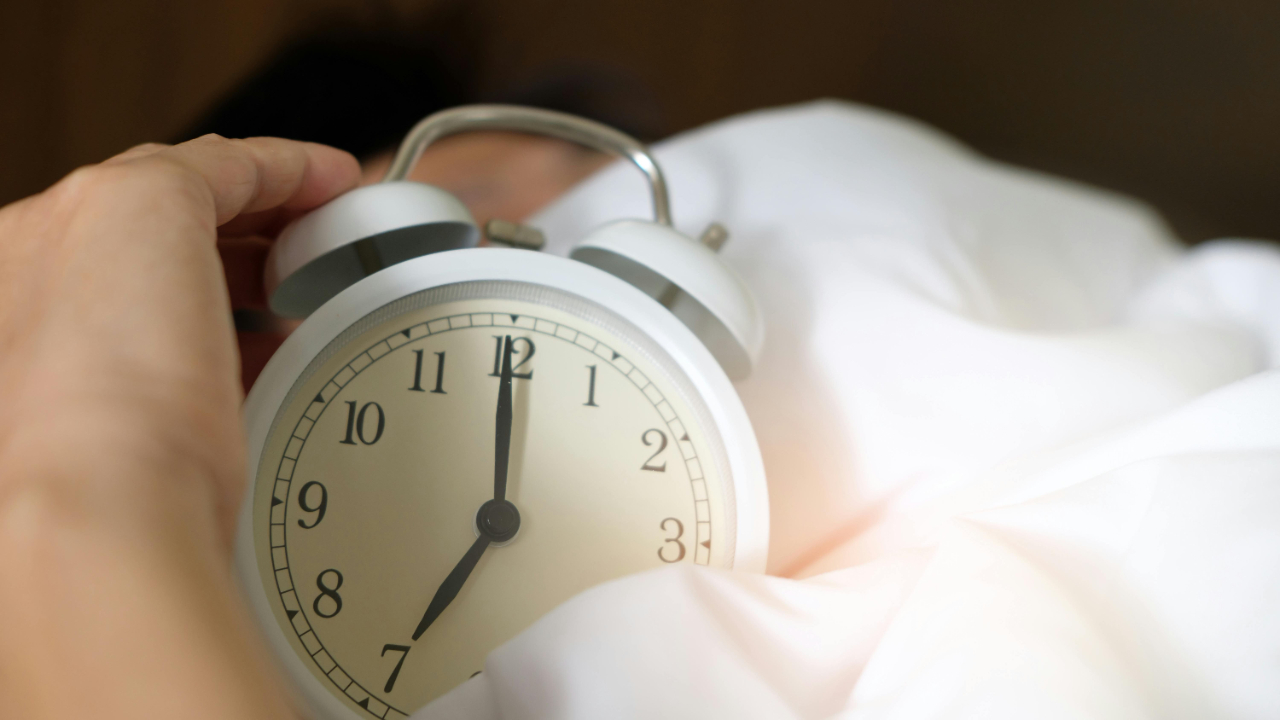The Guilt of Doing Nothing and Why You Probably Need It
Sep 03, 2025
You finally sit down after a long day, ready to relax, but instead of peace, your mind whispers: “You should be doing something!” In a culture obsessed with productivity, slowing down often triggers guilt. But that very guilt might be your mind’s way of telling you that rest isn’t a luxury—it’s a necessity. Learn more about when choosing dinner feels exhausting and what to do about it by clicking here.
Table of Contents
Introduction
You finally sit down on the couch after a long week, ready to exhale and let your body sink into the cushions. Maybe you’ve made a cup of tea or scrolled to a favorite show—but instead of relaxing, your mind chimes in with a familiar accusation: “You should be doing something!”
Sound familiar? You’re not alone. Many of us feel an almost immediate wave of guilt when we slow down, as if rest is a luxury we haven’t earned. In a culture that glorifies busyness and equates productivity with self-worth, doing nothing can feel wrong—even shameful. But here’s the truth: that guilt says more about the world we live in than it does about you. And more importantly, it’s a signal that doing nothing might be exactly what you need most.

Why Doing Nothing Feels Wrong
If you feel uneasy the moment you stop moving, there’s a reason. We’ve been conditioned to believe that rest is indulgent rather than essential. From the rise of “hustle culture” to endless to-do lists, our society praises busyness as a badge of honor. Productivity is treated like a moral virtue—if you’re not constantly accomplishing something, you’re at risk of being labeled lazy, unmotivated, or falling behind.
On a psychological level, this conditioning takes root in different ways. For some, anxiety drives the need to always be doing, creating a sense of safety in constant motion. Others struggle with perfectionism, feeling that unless every task is completed flawlessly, rest hasn’t been “earned.” And for many, the mere idea of downtime triggers fear—fear of being judged, fear of wasted time, or even fear of confronting uncomfortable thoughts that surface in stillness.
Yet research consistently shows that downtime is not wasted time. Studies have found that rest enhances creativity, improves problem-solving, strengthens resilience, and boosts mental health. The brain doesn’t shut off when we “do nothing”—in fact, it’s actively consolidating memories, processing emotions, and generating insights during those moments of pause. In other words, rest isn’t the opposite of productivity; it’s the foundation that makes it possible.
The Science and Psychology of Rest
When you pause and “do nothing,” your brain isn’t actually shutting down. In fact, neuroscience shows that a network of brain regions called the Default Mode Network (DMN) becomes active during periods of rest. This network kicks in when you’re daydreaming, reflecting, or simply letting your thoughts wander. It plays a key role in consolidating memories, processing emotions, and even sparking creative insights. So even when you’re still, your mind is hard at work behind the scenes.
Rest also has powerful benefits for stress reduction and burnout prevention. Constant activity keeps the nervous system in a heightened state of alertness, which over time can drain energy and resilience. Downtime gives the body a chance to reset—lowering stress hormones, rebalancing mood, and restoring mental clarity. Without it, exhaustion and emotional fatigue are inevitable.
Think of it like training for a sport: athletes know that recovery days are just as important as workouts. Muscles need time to repair and strengthen in order to perform at their best. The same is true for the brain. Mental recovery—through stillness, unstructured time, or simply letting yourself “be”—isn’t a luxury; it’s necessary maintenance that allows you to show up fully in your daily life.

The Hidden Benefits of Doing Nothing
When you give yourself permission to pause, you’re not just “wasting time”—you’re giving your mind and body a powerful gift. Rest has a way of restoring capacities that constant busyness drains away.
One of the biggest benefits is a boost in creativity and problem-solving. Many people find that their best ideas come in the shower, on a walk, or while staring out the window. That’s no coincidence—downtime allows the brain to make connections it can’t when you’re forcing focus.
Rest also supports emotional regulation. When you slow down, you create space to notice your feelings instead of being swept up in them. This helps with mindfulness, presence, and the ability to respond thoughtfully rather than react impulsively.
And here’s the paradox: doing nothing can actually make you more productive in the long run. By taking time to reset, you return to your tasks with sharper focus, renewed energy, and greater efficiency. In this sense, rest isn’t the opposite of productivity—it’s the secret ingredient that sustains it.
Why You Probably Need It
If the idea of slowing down makes you uncomfortable, that’s often the clearest sign you need it most. Many people push through exhaustion until their body and mind force them to stop—but you don’t have to wait for burnout to give yourself permission to rest.
Some common signs you might be running on empty include:
-
Brain fog that makes even simple tasks feel overwhelming.
-
Irritability with loved ones, coworkers, or even yourself.
-
Constant fatigue, no matter how much coffee you drink or how much sleep you get.
-
Difficulty enjoying free time, because your mind won’t stop rehearsing what you “should” be doing.
And here’s the important part: if guilt shows up the second you stop, that guilt may actually be pointing to what you need most. It’s a conditioned response, not a reflection of your worth. The very fact that resting feels “wrong” is evidence that your mind and body are overdue for a pause.

How to Practice Doing Nothing Without Guilt
Learning to rest without guilt takes practice, especially if you’ve spent years believing that worth comes from constant productivity. The key is to reframe what “doing nothing” really means. It’s not laziness—it’s intentional self-care. Just like your body needs food and water, your mind needs downtime to function at its best.
If the thought of a whole afternoon off feels impossible, start small. Try setting aside just five minutes to sit quietly without reaching for your phone or distracting yourself with tasks. Let your mind wander, notice your surroundings, or simply focus on your breath.
Pair this with a little self-compassion practice. When guilt creeps in, remind yourself: “Rest is productive. I don’t have to earn it—it’s a basic human need.” This shift in perspective can soften the internal pressure to keep going.
Finally, experiment with unstructured downtime. Watch the clouds drift by, sip your coffee slowly, or listen to the quiet. These small, seemingly unimportant moments can be surprisingly restorative. Over time, you’ll start to see that doing nothing isn’t wasted time—it’s what allows you to recharge and show up more fully in every other area of your life.
Addressing the Guilt Directly
Even when you know rest is important, guilt can still sneak in. That’s okay—it’s a normal response, and it doesn’t mean you’re doing anything wrong. Guilt around rest is usually a conditioned habit, shaped by cultural messages that productivity equals worth. The good news is that habits can be unlearned.
When the guilt surfaces, try shifting your perspective with gentle reminders like:
-
“Rest is part of the work.”
-
“I don’t need to earn downtime—it’s a basic need.”
Instead of fighting the guilt, notice it and let it be there without judgment. Then, pay attention to how you feel after resting. Do you feel clearer, calmer, or more energized? Over time, the experience of seeing real benefits will begin to outweigh the old belief that rest is “wasted time.”
Think of it as an experiment: the more you practice resting without justification, the easier it becomes to trust that doing nothing is not only allowed—it’s necessary.

Conclusion
Doing nothing is not a flaw to fix—it’s a skill to relearn. In a world that constantly demands more, choosing rest is a quiet act of courage and self-trust. The next time guilt creeps in, try sitting with it—and with yourself. Notice how your body feels when it’s given space to simply be.
Remember, you don’t have to prove your worth through endless doing. Sometimes, the most powerful choice is to pause, breathe, and allow stillness. Doing nothing might be exactly the something you need most.
More Resources
If you are interested in learning more, click here. For more information on this topic, we recommend the following:
Are you passionate about helping others unlock their potential? Our Board Certified Coach (BCC) training, approved by the Center for Credentialing & Education (CCE), equips you with the skills, tools, and certification needed to thrive as a professional coach. Take the next step toward a rewarding coaching career with our comprehensive program! Click here to learn more!
The Art of Doing Nothing: The No-Guilt Practical Burnout Recovery System for Busy Professionals
The Art of Doing Nothing: Simple Ways to Make Time for Yourself
DISCLAIMER: As an Amazon Associate we earn from qualifying purchases. This post may contain affiliate links that will reward us monetarily or otherwise when you use them to make qualifying purchases. In addition, there may be non-Amazon affiliate links in this post which means we may receive a commission if you purchase something through a link. However, be assured that we only recommend products that we see genuine value in.
The information provided is for educational purposes only and does not constitute clinical advice. Consult with a medical or mental health professional for advice.
Finances do not have to prevent you from getting support.
Come join our support community.
Where would you like us to send the free support group invite and complimentary workbook?
Your Information Will Be Kept Private




